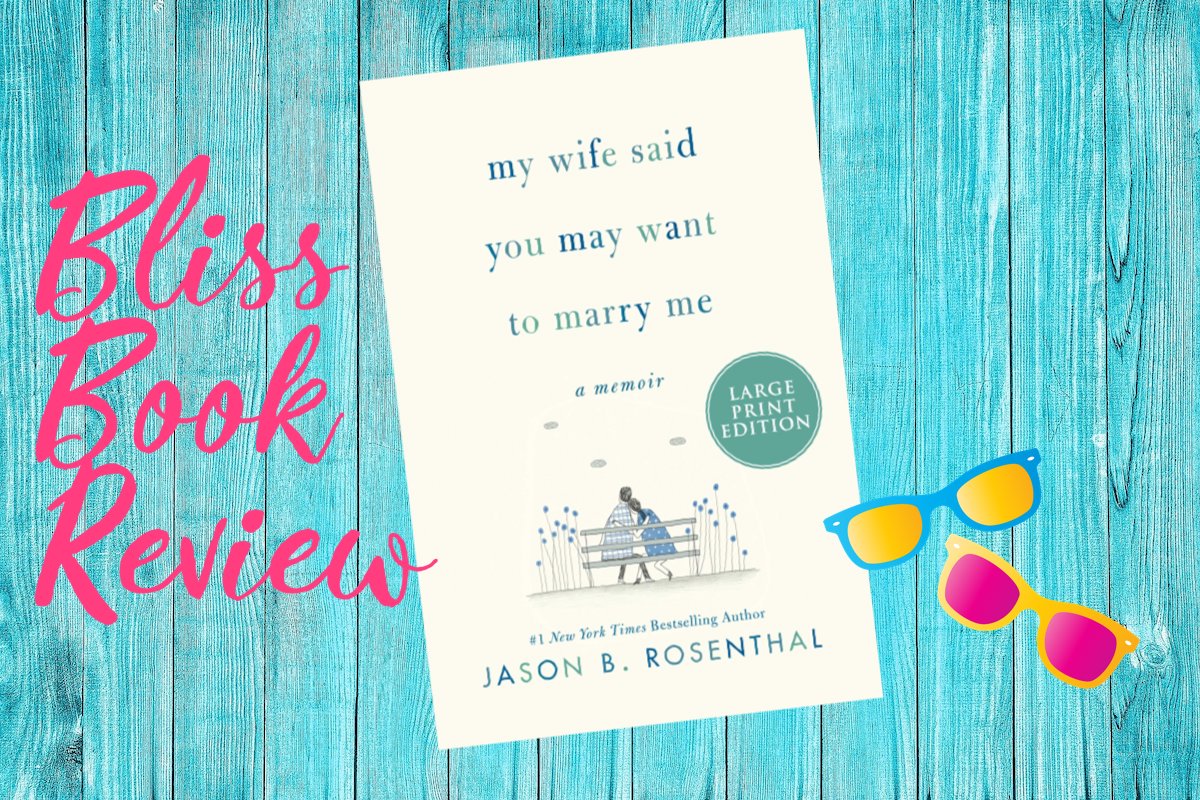
Final bliss
When the book opens, we learn that the author’s wife Amy has just passed away tragically from cancer.
But. Before she closed her eyes for the final time, she wrote an essay that was published in the New York Times’ Modern Love column. It went viral.
She wrote about how much she loved her husband and what a great guy he was, and how she would love to find someone to take her place when she leaves this green and bountiful earth.
What a beautiful gift she gave him, and the world. And isn’t it amazing that people can find their bliss in giving to others, even in truly dark and painful times?
Memoir bliss
As a follow up to Amy’s piece (after she passed), Jason also wrote an essay for the same New York Times column, which became the jumping off point for this memoir. The heart of the book is Jason taking us through the ups and downs of Amy’s cancer diagnosis and subsequent treatment. If you like to read true stories, this one is easy to dive into.
But make sure you have Kleenex handy.
Love-no-matter-what bliss
No matter how sick she gets, when Jason describes his wife, his love jumps off the page. For example: “It still kind of amazes me how cute and alive Amy looks in this picture. Sure, a little thin, but so Amy.”
He talks with such pride about her energy and her commitment to her various projects, and about how, even though he was clearly devastated, he found bliss with his wife until the end.
He also bursts with love for his kids, whom he describes as “Marvel superheroes”, and “an incredible blend of stunningly beautiful, and confidently strong.”
He says he would not have gotten through the very dark times without the physical and emotional support of his children.
Friendship bliss
One of my favourite parts of the book is when Jason talks about his friends. He explains how some people were incredibly supportive in ways you wouldn’t think of. For example, “One close friend of mine texted Grateful Dead lyrics to me every week, all of them on the theme of the eternal nature of deep love…such a simple, powerful way to connect.”
Jason also offers the reader some advice on what to do (“stay connected”), and what not to do (“that tilt of the head with a furrowed brow”), when someone you know is facing a tragic situation.
Moving-on bliss
By the end of the book, we know that Jason is starting to put the pieces together for a new life.
We know that he is spending time with his adult children, slowly going out with friends and listening to live music again. He vaguely mentions that he has met someone else and that she is not one of the thousands of people who wrote to him at Amy’s deathbed suggestion.
This kind of bliss is gentle, like a bubbling brook rather than a crashing waterfall. We are left with the sensation that everything will be OK, but it will never be the same.
We’d love to hear from you! Please send us your suggestions for future articles. And if you’re a writer, please see our writer’s submissions page for details.

